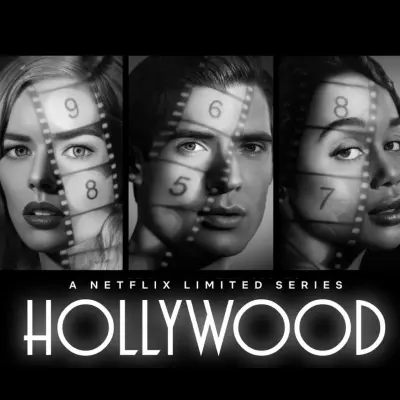Forget Hollywood's flaws: Ryan Murphy's alt-history drama is intriguing as a fairy tale
-

"So often in alternate universe/history, the norm is to go for the most extreme negative version of reality," says Princess Weekes. "What if Nazis won WWII? What if the South won the Civil War? Well in Ryan Murphy’s latest endeavor, Hollywood, he instead asks: What if Hollywood had been more progressive following WWII?" Weekes adds: "I know a lot of people have taken issue with the historical fictionalization of the events, and Slate’s Sam Adams argued that the show 'inadvertently suggests that their predecessors might have had the same success if they’d only just worked up the nerve.' I don’t think the show attempts to do that, although its flattening of the history might make a less informed viewer think so. I think Hollywood is a fairy tale, and it’s a fairy tale cowritten and created by a white gay man and a Black Hawaiian trans woman. It reflects a desire to illustrate what movies and television could have been like if there wasn’t always a struggle in being 'the first'—if there had been this template for Asian women, Black women, gay men, and women that appreciated their humanity. It is painfully optimistic, and while I do understand that perspective, I was also moved by Jeremy Pope’s speech as Archie, declaring himself to the world, because Jeremy Pope is a Black gay man, so he, of all people, would have an idea of what that representation would have meant."
ALSO:
- Why doesn't Hollywood envision disabled actors in the 1940s?: "People with disabilities are commonly ignored from inclusion talks so, sadly, this isn’t particularly surprising in the grand scheme of things," says Kristen Lopez. "What is surprising is that Murphy, who has placed disabled actors in prominent roles before, ignores the actual strides disabled actors made by 1947-1948 (the year in which Hollywood takes place). And to create a revisionist Hollywood that lacks the disabled is to, once again, ignore a group whose fairy tale ending hasn’t even begun to be discussed."
- Laura Harrier found inspiration in Dorothy Dandridge and Lena Horne: “I looked at both of them to understand what it felt like to have a dream to be a leading lady and yet have nobody to look to onscreen," she says. “It’s not like when I was growing up and could look at Halle Berry, Angela Bassett, Nia Long and Jada Pinkett Smith."
- Hollywood scrapped plans to show full-frontal nudity from its male stars
TOPICS: Hollywood, Netflix, Laura Harrier, Ryan Murphy, Disabilities and TV, Nudity
More Hollywood on Primetimer:- Did Cora Susan Collins have a husband and a kid? Family details explored as tributes pour in for actress' death at 98
- Ryan Murphy's work is suffering on Netflix: He now seems to favor winners over underdogs
- Ryan Murphy's Netflix Report Card
- Ryan Murphy is now 0 for 3 with his Netflix shows, at least in terms of critical acclaim
